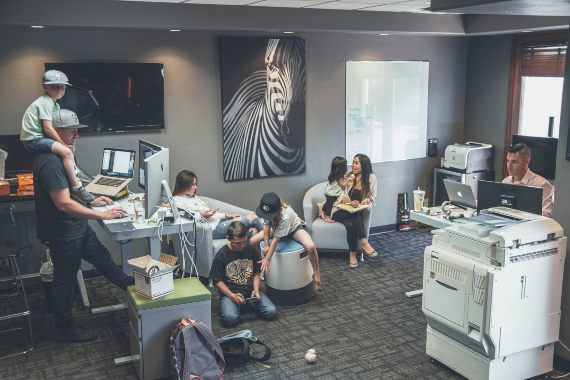Now more than ever, organisations and societies must focus on inclusiveness to help us recover from the Covid19 crisis. The pandemic has reminded us that we are all vulnerable, but that some are much more vulnerable than others. That is true both of the virus itself, which has hit elderly people and certain ethnic groups much harder than others, and of the economic fallout.
There is mounting evidence that young people and women are worst affected by the ensuing jobs crisis. More than one in six young people have stopped working and those still working have seen their hours cut by nearly a quarter, according to the International Labour Organisation. The rapid rise in youth unemployment is hitting young women harder than young men.

In the midst of crisis, there are also opportunities to change things for the better: to rethink how we live, how we take care of our planet, and how we ensure that work is accessible and human for everyone.
How can leaders of organisations respond? Here are three ways:
1. Recognise the power of inclusion.
No organisation, leader or individual can hope to survive or thrive alone in today’s swirling sea of uncertainty and change. Connection, collaboration and co-creation are critical. Businesses must draw on the collective strength of the broadest possible mix of perspectives, experiences, backgrounds and ideas to find solutions to our greatest business and societal challenges. To enable that mix of people to participate, contribute and feel ownership, it is important to get inclusion right.
In our book INdivisible, Rebekah Steele and I show how investing in inclusiveness drives team and business performance, equips organisations with future-focused skills, and demonstrates a purpose beyond profit. All of these things will be critical as we move into the post-Covid reality.
Are you connecting inclusion to your organisation’s strategy and goals as you would any other business driver? Are you integrating business-linked measures of inclusion, such as how inclusive teams generate more innovation or faster career growth, into your existing business scorecards?
2. Prioritise people-focused leadership skills.
The crisis has highlighted extremes of good and bad leadership, particularly on the international stage. Within organisations, many are talking about an increase in emotional intelligence and empathy resulting from the forced mass experiment in virtual working. Leaders and individuals have seen their co-workers’ whole identities – with children, elderly relatives, pets, chaos or isolation in the background, and sometimes in the foreground. It will be hard to put people back into single-identity boxes such as race or gender or disability after this.
Inclusive behaviours such as respect, transparency, fairness, shared power and shared purpose are important to build trust in leaders during this time of huge uncertainty. These are six of the 10 ‘enablers’ we describe in our book as essential to create and sustain inclusive work environments. Those ingredients can easily be destroyed if employers use technologies that monitor virtual workers’ time and productivity. They imply a lack of trust and connection.
Virtual is here to stay, and will be a much bigger part of the future work mix. As you consider this mix for your organisation, how will you ensure that you are treating everyone fairly and respectfully and that no voice is being left out?
Virtual working offers many advantages in terms of including a wider range of workers. But it is not easy for everyone. For example, hearing-impaired workers who rely on lip-reading can find it difficult to read a screen full of faces or navigate people talking over each other. How can you build on what you’ve learned about people’s whole identities to design more inclusive work for all? What processes do you need to change or replace to enable everyone to contribute fully in the way that works best for them?
3. Think big with your inclusion strategy.
The crisis has highlighted the role of key workers in supporting the wellbeing and smooth running of societies. As well as health workers and caregivers, these essential workers include food retailers, delivery drivers, refuse collectors and transport staff. Many of these people are in low paid and precarious jobs. Many are from marginalised migrant or ethnic minority populations.
Pioneering companies are starting to recognise the interdependence of inclusion and social, environmental and economic sustainability. Investors are showing greater interest in how companies demonstrate social as well as environmental and economic good. One of the case studies in our book, Sodexo, the international services company, has generated both business and societal gains from hiring refugees.

Does your inclusion strategy extend to on-demand workers such as the cleaners, couriers and virtual assistants on whom your business relies? Do you invite their input and ideas, take account of their needs, and include them in social or community events? If not, can you truly call yourself an inclusive organisation?
As you plan for the post-Covid era, how will you take account of wider trends to ensure that your business benefits from the full mix of people, including those most affected by the jobs crisis, such as young women? What do you need to start doing differently right now?
Comments on this publication